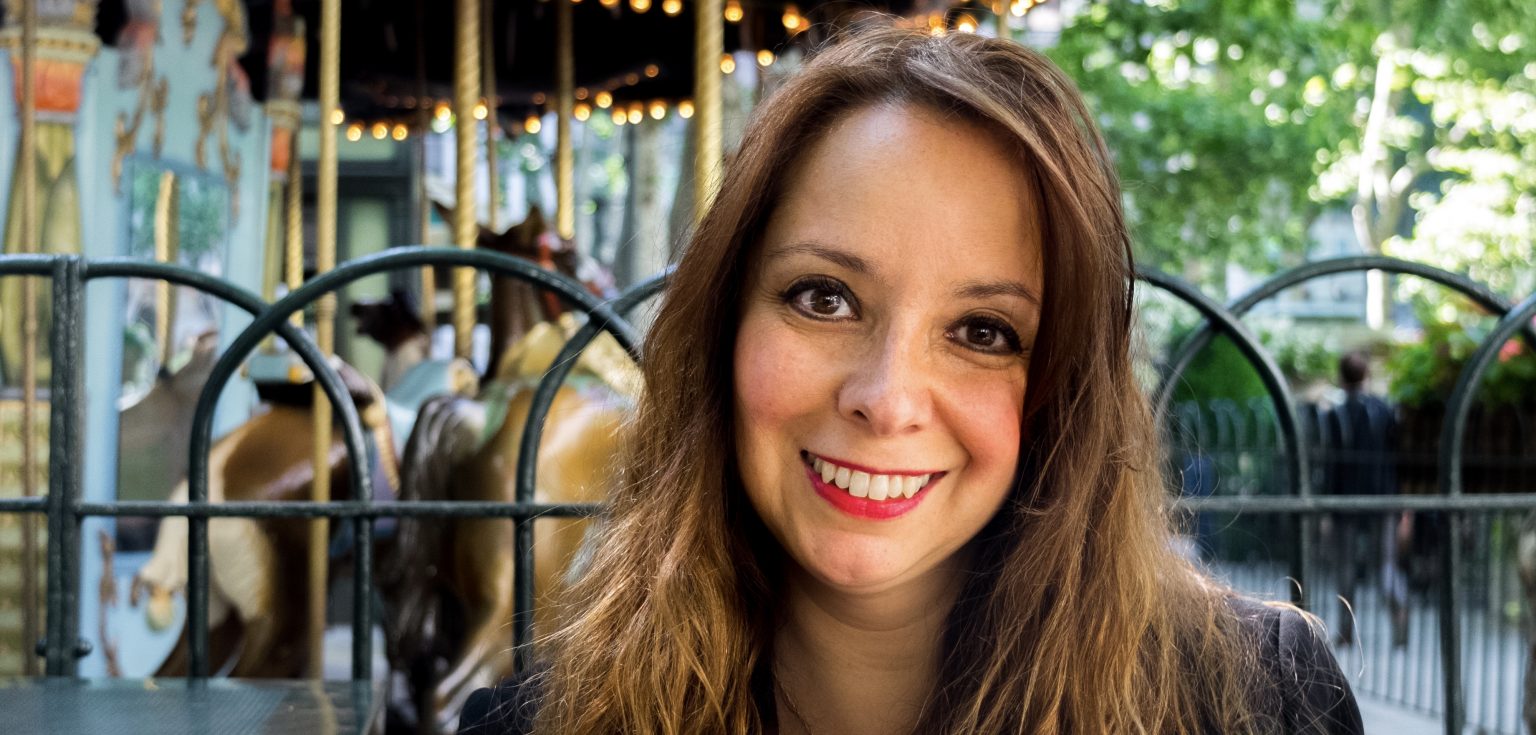Caballero Jaime is a pastoral mental health counseling student at the Graduate School of Religion and Religious Education. This May, she will graduate with her master’s degree and plans to transition in the future from her full-time job as a liaison at the Mexican consulate in New York City to a job in her new field.
“I would like to continue helping women especially, and children, to be with them in this journey they have, and try to help them in any way possible as a pastoral mental health counselor,” Caballero Jaime said.
An Immigrant from Mexico
Caballero Jaime was born and raised in Mexico City, the fifth most densely populated city in the world, according to the United Nations. She grew up in a conservative Catholic family with her parents and two older brothers. Her father, a lawyer, passed away when she was 9 years old, but instilled a love for reading and writing in his daughter—“one of the best presents you could ever have,” said Caballero Jaime.
She said she also found a role model in her mother, a family housewife who became a vice-director in a cosmetics company.
“I am here because of her hard work,” she said.
Caballero Jaime went on to serve as deputy director of public relations for the Senate of the Republic of Mexico and political adviser for the National Action Party in Mexico City. In 2008, she moved to the U.S. to work for the Consulate General of Mexico in New York, where she currently works to assist the Mexican population living in the tri-state area. The consulate provides passports, IDs, records, visas, and consultations on protection and community affairs. Its members travel to more than 60 locations, including regions that are eight hours away from its main office in Manhattan.
“She articulates a deep desire to improve the quality of life of Mexican immigrants in the United States,” said Faustino “Tito” Cruz, S.M., dean of GRE. “In many ways, she is an insider-outsider who attempts to address both the personal and systemic/communitarian quest for human dignity.”
Five years ago, she realized she wanted to help people in a different way. From 2015 to 2018, she served as a pastoral care volunteer at the Brooklyn Hospital Center, where she supported patients with neurocognitive disorders, addictions, trauma, and terminal illnesses. It was an eye-opening experience that made her want to do more, she said.
One day, she sought advice from her pastor. “I think I have this call[ing],” she remembered telling him. “I think you should look at this,” he said, pulling out a copy of Fordham Magazine and showing her a story referring to the Graduate School of Religion and Religious Education. Later that night, she returned home and browsed the GRE website. She was hooked.
‘You Are Here, and You Are More Than Welcome’
For three years, she learned about a new world. Instead of studying translation and political science, as she had done for her prior degrees, she learned about psychopathology and diagnosis, trauma, and ethics. She studied religion and theology from different perspectives and learned how important it is to embrace the culture and country you come from. In a supervised clinical internship at the Family Health Centers at NYU Langone in Brooklyn this year, she said she realized the need for bilingual psychotherapists—especially with a background like her own.
“One of my patients, I remember, she told me when she first saw me, she thought, oh my goodness, she’s not going to understand where I am coming from because she’s white,” said Caballero Jaime. “She said she felt identified when I described myself. I said, ‘Well, my name is María, I’m Mexican, and I’m also an immigrant.’ That was the link. That was the click.”
She said that experience reminds her of one of the most important lessons she learned from GRE.
“It’s something that Fordham has taught me. It doesn’t matter where you come from. It doesn’t matter if you are Latina, if you are Chinese, Korean, Egyptian. You are here, and you are more than welcome,” Caballero Jaime said.
In the years ahead, Caballero Jaime said she wants to empower her clients, especially women who have been physically or sexually abused. And no matter what that role looks like, Caballero Jaime will do a great job, said one of her mentors at GRE.
“She’s very impressive, personally, intellectually, and in her own work in pastoral counseling studies,” said Francis X. McAloon, S.J., associate professor of Christian spirituality and Ignatian studies at GRE, to whom Caballero Jaime served as a research assistant for three years. “She is a godsend, really. And I know whatever she’s going to pursue in the future—presumably some kind of pastoral counseling practice—she’ll do a great job.”

